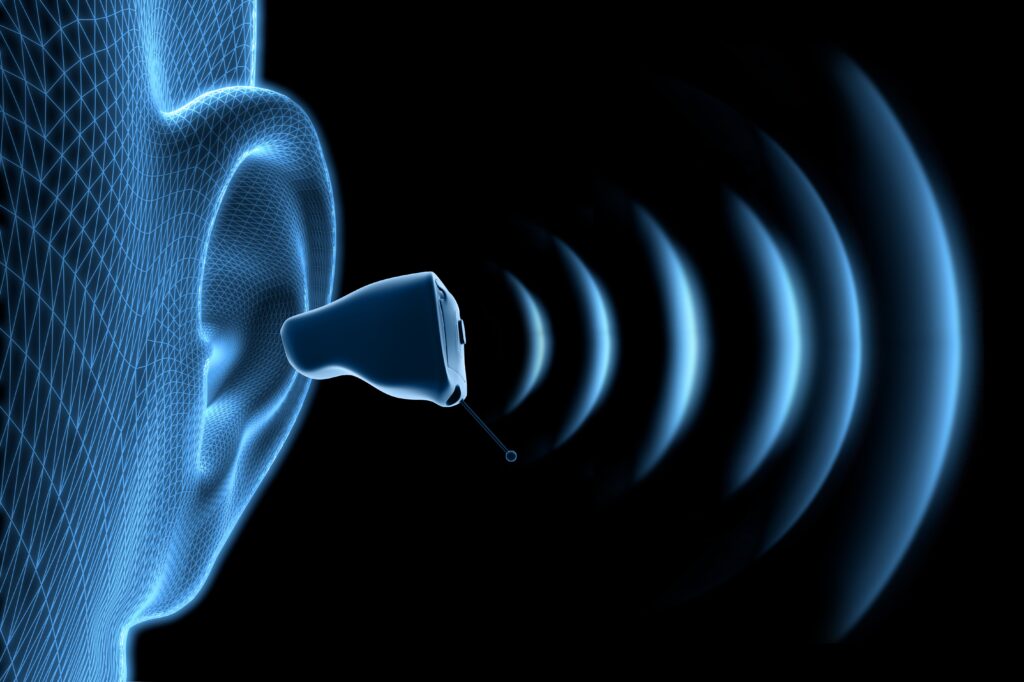What is a Severe-Profound Hearing Loss?
The words severe and profound can sound alarming when an audiologist explains your hearing test results. But what do these terms really mean, and how can you manage this level of hearing loss.
When describing hearing loss, hearing care professionals avoid using overall percentages. Instead, they refer to hearing thresholds on an audiogram, particularly between 500Hz and 4kHz. If threshold exceed 70 dB HL, this is classified as severe hearing loss. Threshold beyond 90 dB HL indicate a profound hearing loss. the audiogram charts these results from pure tone audiometry.
What Are The Effects of This Hearing Loss
The effects of severe-profound hearing loss vary from person to person. It depends on how well someone can process sounds, their ability to lip-read, and how long they’ve had the hearing loss.
A bilateral profound hearing loss (in both ears) can impact all aspects of daily communication. This is especially true if hearing aids are not worn. Some common challenges include:
- Hearing soft voices or when the speaker is turned away
People with profound hearing loss may not hear soft voices at all, especially if the speaker is turned away. Without visual cues, like lip movements, understanding speech becomes even harder.
- Missing alert and alarm sounds
Doorbells, oven timers, or phone rings may go unheard, particularly if the individual is far from the sound source or not wearing hearing aids. Smoke or carbon monoxide detectors might also go unnoticed. Visual alerts such as flashing alarms are more effective in these cases.
- Difficulty with telephone conversation
Severe-profound hearing loss often makes phone conversations difficult. Without visual cues and with significant sound loss, assistive devices or direct streaming to hearing aids become essential.
- Hearing over a distance
Voices fade with distance. Those with profound hearing loss are already missing sound, so they may not hear someone speaking from another room or across a hall.
- Group conversation
Group chats are unpredictable. It’s hard to follow who’s speaking and lip-read effectively. In noisy environments like cafés or restaurants, distinguishing speech from background sounds becomes even more challenging.
Signs of a Severe-Profound Hearing Loss
Some behavior and challenges can indicate a severe-profound hearing loss. Recognizing these signs early can lead to better management and support.
- Turning the television up significantly and still complaining it’s unclear.
- Frequently missing alerts such as doorbell, oven timer, or ringing phone.
- Not hearing alarms, including smoke or carbon monoxide detectors – this poses safety concerns.
- Constantly asking for repetition, even in quiet settings.
- Misunderstanding conversations and responding inappropriately.
- Withdrawing in social situations, becoming quiet or disengaged.
- Dominating conversations as coping mechanism, talking more reduces the need to listen.
- Struggling on the phone, even with speakerphone enabled.
Although it may seem contradictory, some people with profound hearing loss appear chatty and confident. This is often a coping mechanism.
Management and Treatment
Contact a ENT consultant
If you’ve been newly diagnosed with severe-profound conductive or mixed hearing loss, speak to your GP or hearing care provider about a referral to an ENT (Ear, Nose & Throat) consultant. Depending on the cause, treatments like surgical intervention or bone conduction hearing aids might be available. For sensorineural hearing loss, ENT consultation remains important, as you may be eligible for a cochlear implant.
Hearing Aids
If surgery isn’t an option, hearing aids can help manage severe-profound hearing loss. Audiologists program these devices according to your specific hearing thresholds, giving you access to the speech sounds you struggle to hear unaided. However, the more advanced the hearing loss, the more amplification is required—and that can affect sound clarity.
It’s vital to set realistic expectations. Hearing aids can help, but they don’t restore normal hearing. In the UK, you can access hearing aids through the NHS, depending on eligibility. Alternatively, private hearing care offers a broader range of styles and technologies.
If you’re in Leicestershire, Warwickshire or Northamptonshire, you can visit one of our Hear4U clinics. We also offer interest-free finance plans, making private care more accessible.
First-time wearers of hearing aids, whose hearing has already deteriorated to severe-profound levels, can expect a longer acclimatisation period compared with those of a mild hearing loss. This is because of the amount of sound that is “given” back, for the brain to adjust to. This is why it is always recommended that hearing help is sought as soon as symptoms of hearing loss is noticed – the earlier you start on your journey to better hearing, the easier it is likely to be for you to adjust to hearing aids.
Assistive listening devices
Assistive listening devices that can connect wirelessly to hearing aids can be hugely beneficial in the management of a severe-profound hearing loss. Those who have greater difficulty processing sound in noisy environments are most likely to benefit from the use of a gadget called a remote microphone. Audiologists at Hear4U have access to speech-in-noise testing so are able to explain the individual ability to process sound in challenging environments and therefore whether a remote microphone will suit somebody’s needs.
TV streamers are a fantastic way to get the best quality of sound when watching favourite television programmes and mean that the hearing aid user and their family can watch at their own preferred volume. Most new technology private hearing aids will be able to connect wirelessly to mobile phones, but for slightly older models, a phone clip or adapter will enable the wearer to stream sound from their mobile (and more!). If you already have a pair of hearing aids and want to purchase an assistive listening device, head over to our sister site BY CLICKING HERE to find out more.
Occasionally, for those stubborn ones among us who may have left things until their family are at their wit’s end, extended auditory deprivation can mean that adjusting to hearing aids is not possible. For these cases, TV listeners can be a huge help for the household dynamic if the TV lover with a severe-profound hearing loss refuses hearing aids. By wearing TV listening headphones, they can listen at their own volume preference without disturbing other members of the household or their neighbours. TV listening devices can also be found on our sister site






